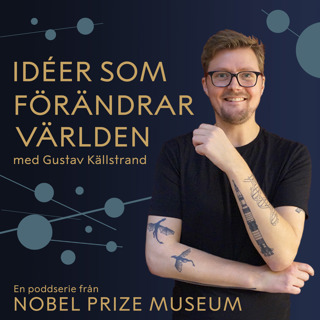
AMA | February 2023
Welcome to the February 2023 Ask Me Anything episode of Mindscape! These monthly excursions are funded by Patreon supporters (who are also the ones asking the questions). We take questions asked by Patreons, whittle them down to a more manageable number — based primarily on whether I have anything interesting to say about them, not whether the questions themselves are good — and sometimes group them together if they are about a similar topic. Enjoy!Support Mindscape on Patreon.The big news this month is the successful awarding of the first ever Mindscape Big Picture Scholarship. Congratulations to Lyat Melese and Rehman Hassan! We continue to collection donations for next year’s scholarship contest.See Privacy Policy at https://art19.com/privacy and California Privacy Notice at https://art19.com/privacy#do-not-sell-my-info.
6 Feb 20233h 7min

225 | Michael Tomasello on The Social Origins of Cognition and Agency
Human beings have developed wondrous capacities to take in information about the world, mull it over, think about a suite of future implications, and decide on a course of action based on those deliberations. These abilities developed over evolutionary history for a variety of reasons and under a number of different pressures. But one crucially important aspect of their development is their social function. According to Michael Tomasello, we developed agency and cognition and even morality in order to better communicate and cooperate with our fellow humans. Support Mindscape on Patreon.Michael Tomasello received a Ph.D. in experimental psychology from the University of Georgia. He is currently the James Bonk Professor of Psychology & Neuroscience and Director of the Developmental Psychology Program at Duke University. He is a fellow of the National Academy of Sciences and the American Academy of Arts and Sciences. Among his awards are the Distinguished Scientific Contribution Award from the American Psychological Association, the Wiley Prize in Psychology, and the Heineken Prize for Cognitive Science. His newest book is The Evolution of Agency: Behavioral Organization from Lizards to Humans.Web siteDuke web pageGoogle Scholar publicationsWikipediaAmazon author page See Privacy Policy at https://art19.com/privacy and California Privacy Notice at https://art19.com/privacy#do-not-sell-my-info.
30 Jan 20231h 22min

224 | Edward Tufte on Data, Design, and Truth
So you have some information — how are you going to share it with and present it to the rest of the world? There has been a long history of organizing and displaying information without putting too much thought into it, but Edward Tufte has done an enormous amount to change that. Beginning with The Visual Display of Quantitative Information, and continuing to his new book Seeing With Fresh Eyes: Meaning, Space, Data, Truth, Tufte’s works have shaped how we think about charts, graphs, and other forms of presenting data. We talk about information, design, and how thinking about data reflects how we think about the world.Support Mindscape on Patreon.Edward Tufte received his Ph.D. in political science from Yale University. He has been a professor of public affairs at Princeton and of political science, statistics, and computer science at Yale, where he is currently emeritus professor. He is the founder and owner of Graphics Press, and his books have sold nearly 2 million copies worldwide. He is an active artist and sculptor, as well as a touring lecturer.Web siteYale web pageAmazon.com author pageWikipediaTwitterSee Privacy Policy at https://art19.com/privacy and California Privacy Notice at https://art19.com/privacy#do-not-sell-my-info.
23 Jan 20231h 16min

223 | Tania Lombrozo on What Explanations Are
There are few human impulses more primal than the desire for explanations. We have expectations concerning what happens, and when what we experience differs from those expectations, we want to know the reason why. There are obvious philosophy questions here: What is an explanation? Do explanations bottom out, or go forever? But there are also psychology questions: What precisely is it that we seek when we demand an explanation? What makes us satisfied with one? Tania Lombrozo is a psychologist who is also conversant with the philosophical side of things. She offers some pretty convincing explanations for why we value explanation so highly.Support Mindscape on Patreon.Tania Lombrozo received her Ph.D. in psychology from Harvard University. She is currently a professor of psychology at Princeton. Among her awards are the Gittier Award from the American Psychological Foundation, an Early Investigator Award from the Society of Experimental Psychologists, and the Stanton Prize from the Society for Philosophy and Psychology.Web pageConcepts and Cognition LabGoogle Scholar publicationsPsychology Today articlesWikipediaTwitterSee Privacy Policy at https://art19.com/privacy and California Privacy Notice at https://art19.com/privacy#do-not-sell-my-info.
16 Jan 20231h 10min

222 | Andrew Strominger on Quantum Gravity and the Real World
Quantum gravity research is inspired by experiment — all of the experimental data that supports quantum mechanics, and supports general relativity — but it’s only inspiration, not detailed guidance. So it’s easy to “do research on quantum gravity” and get lost in a world of toy models and mathematical abstraction. Today’s guest, Andrew Strominger, is a leading researcher in string theory and quantum gravity, and one who has always kept his eyes on the prize: connecting to the real world. We talk about the development of string theory, the puzzle of a positive cosmological constant, and how black holes and string theory can teach us about each other. Support Mindscape on Patreon.Andrew Strominger received his Ph.D. in physics from the Massachusetts Institute of Technology. He is currently the Gwill E. York Professor of Physics at Harvard University. Among his awards are the Dirac Medal, the Klein Medal, the Breakthrough Prize in Fundamental Physics, and a Guggenheim Fellowship.Web pageInSpire publicationsWikipediaSee Privacy Policy at https://art19.com/privacy and California Privacy Notice at https://art19.com/privacy#do-not-sell-my-info.
9 Jan 20231h 24min

221 | Adam Bulley on How Mental Time Travel Makes Us Human
One of the most powerful of all human capacities is the ability to imagine ourselves in hypothetical situations at different times. We can remember the past, but also conjure up possible futures that haven’t yet happened. This simple ability underlies our capability to organize socially and make contracts with other people. Today’s guest, psychologist Adam Bulley, argues that it’s the primary feature that makes us recognizably human, as he argues in the new book The Invention of Tomorrow: A Natural History of Foresight (with Thomas Suddendorf and Jonathan Redshaw).Support Mindscape on Patreon.Adam Bulley received his Ph.D. in psychology from the University of Queensland. He is currently a postdoctoral fellow at the Brain and Mind Centre and School of Psychology, The University of Sydney, and the Department of Psychology at Harvard University.Web siteHarvard web pageGoogle Scholar publicationsTwitterSee Privacy Policy at https://art19.com/privacy and California Privacy Notice at https://art19.com/privacy#do-not-sell-my-info.
2 Jan 20231h 20min

Holiday Message 2022: Thinking Really Slowly
Welcome to that beloved Mindscape annual tradition, the Holiday Message. An opportunity for a quicker and less-well-thought-out solo episode to round off another year. Ironically, this year the theme is the importance of slowing down and thinking things out really well! Illustrated by two things that have been on my mind: a couple of internet/tech kerfuffles (Elon Musk buying Twitter, Sam Bankman-Fried and the collapse of FTX), and the distinction between foundations of physics and “regular” physics. See if you can dimly perceive the thread that ties them together.See Privacy Policy at https://art19.com/privacy and California Privacy Notice at https://art19.com/privacy#do-not-sell-my-info.
19 Dec 202247min

220 | Lara Buchak on Risk and Rationality
Life is rich with moments of uncertainty, where we’re not exactly sure what’s going to happen next. We often find ourselves in situations where we have to choose between different kinds of uncertainty; maybe one option is very likely to have a “pretty good” outcome, while another has some probability for “great” and some for “truly awful.” In such circumstances, what’s the rational way to choose? Is it rational to go to great lengths to avoid choices where the worst outcome is very bad? Lara Buchak argues that it is, thereby expanding and generalizing the usual rules of rational choice in conditions of risk.Support Mindscape on Patreon.Lara Buchak received a Ph.D. in philosophy from Princeton University. She is currently a professor of philosophy at Princeton. Her research interests include decision theory, social choice theory, epistemology, ethics, and the philosophy of religion. She was the inaugural winner of the Alvin Plantinga Prize of the American Philosophical Association. Her book Risk and Rationality proposes a new way of dealing with risk in rational-choice theory.Web sitePrinceton web pagePhilPeople profileGoogle Scholar publicationsSee Privacy Policy at https://art19.com/privacy and California Privacy Notice at https://art19.com/privacy#do-not-sell-my-info.
12 Dec 20221h 16min




















